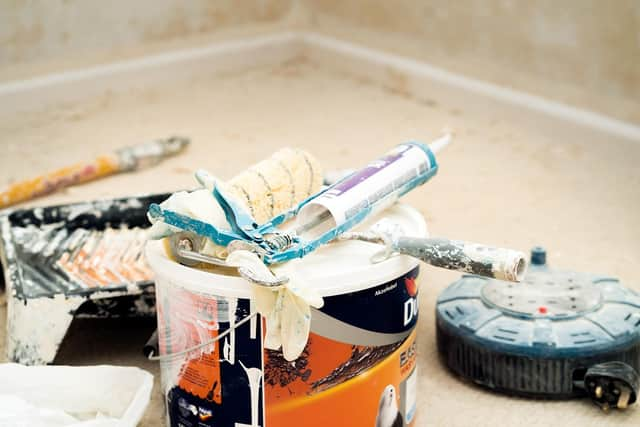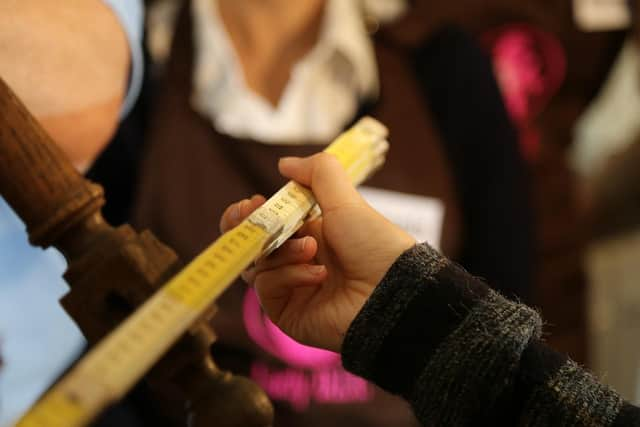Avoid tackling these DIY jobs to save cash - botched work costs you more
This article contains affiliate links. We may earn a small commission on items purchased through this article, but that does not affect our editorial judgement.


Stopping leaks, plumbing, changing taps and decorating are the most common botched jobs that tradespeople are called out to fix on a regular basis.
For 70 per cent of people across the UK, ‘saving money’ is the reason they give for attempting a task themselves instead of calling in an expert to do it.
Advertisement
Hide AdAdvertisement
Hide AdTrade professionals expect botched jobs to add between £100-£500 to a job’s usual price.
In a recent survey, 68 per cent of Brits said that they have tried to fix something at home themselves, before going on to hire a professional.
The top five most common botched jobs, as revealed in the survey by Toolstation, are;
Fixing leaks
One owner of a plumbing and gas services company, said: “When money is tight, people often resort to attempting plumbing jobs themselves to save money, but it can end up costing them more.
Advertisement
Hide AdAdvertisement
Hide Ad

“They have to pay for my time to correct the problem, replacement parts and the cost to repair the damage, which is a lot more expensive than paying me to do the job in the first place.”
Plumbing in appliances
The most common jobs people attempt include fitting their own radiators, plumbing in taps, and installing electric showers. But when done wrong these often result in leaks and water damage, which is when people call in a tradesperson.
Plumbing in bathrooms/ kitchens


One heating engineer said: “I am often called by people who have had a go at plumbing in a toilet in a downstairs loo. I think because it is seen as a small job, people feel confident having a go. Issues usually arise if they haven’t got the correct tools or an understanding of how a toilet functions.”
Changing taps
A spokesperson from Toolstation said: “If you’ve spent £100 on new taps and make a mistake when fitting them yourself, you’re going to pay another £110-£130 for a professional to fix the problem, and that’s if the issue is just with the taps.”
Painting and decorating
Advertisement
Hide AdAdvertisement
Hide AdOne professional plasterer surveyed said: “I get called out for botched plastering jobs and sometimes this adds another day of work to re-prep the area and remove anything done already. This adds roughly £150-£200 to the job.”
Four in ten trade experts expect a botch-up to add £100 to £500 to a job’s original price.
For the extra time and money involved in work that has gone wrong, it may pay to hire a professional in the first place, particularly if a project requires technical skills and knowledge.
Jobs involving water, electricity and gas should be avoided by those that don’t have the experience, tools, or knowledge necessary for the task. Work like this carries huge risks if done incorrectly.
Advertisement
Hide AdAdvertisement
Hide AdOther findings from the study revealed that 30 per cent of trade experts fix mistakes at least monthly. Six per cent reported doing this at least once a week.
Professionals warn most against tackling jobs involving water, electric and gas, as these can lead to catastrophic damage if done wrong.
Half of trade experts will turn down botched jobs, with 70 per cent being concerned that other unexpected problems would arise.
Visit www.toolstation.com for more tips and information.